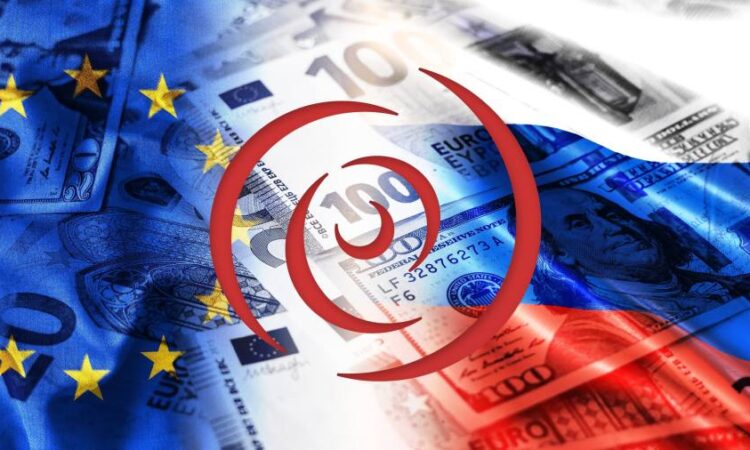
This article is an on-site version of our FirstFT newsletter. Sign up to our Asia, Europe/Africa or Americas edition to get it sent straight to your inbox every weekday morning
The EU has discussed sending Ukraine the profits generated by €196.6bn in frozen Russian assets that are stuck inside the plumbing of global financial markets.
Officials from member states and the European Commission met on Wednesday to explore options for siphoning off the interest generated by Russian assets held at Euroclear, the world’s biggest settlement house, according to people familiar with the matter.
Such a move would stop short of expropriating the assets themselves but would still amount to an escalation in the west’s financial pressure on Russia, with the aim of helping Kyiv defend itself from Vladimir Putin’s war.
The assets are generating cash that is reinvested by Euroclear, and it is the profits generated by the reinvestment that EU officials are interested in diverting to Ukraine.
Here’s what else I’m watching today:
-
Turkey interest rate: Economists expect Turkish policymakers to hold the policy rate steady ahead of Sunday’s presidential election run-off. For more, read Alan Beattie’s take on President Erdoğan’s subversion of monetary policy.
-
Annual meetings: McDonald’s faces pressure from two of Europe’s largest asset managers to reduce antibiotic usage, and Illumina heads into a pivotal vote in its proxy battle with activist investor Carl Icahn.
-
Economic data: France has business confidence figures, Germany and the US publish revised gross domestic product numbers for the first quarter and the UK releases immigration data.
Five more top stories
1. Exclusive: Arm is limiting its “blue sky” research with the closure of a flagship tech division and rechanneling its efforts into more commercially viable products ahead of the UK chip designer’s hotly anticipated public listing in New York this year. Read the full story.
2. Exclusive: A pension fund for the UK’s wealthiest borough has spent about £150mn on commercial property, including the site of a Morrisons supermarket in Hampshire and an Audi car showroom in Milton Keynes, in the past year and a half. Here’s why the bet by the Kensington and Chelsea council’s £1.6bn scheme is controversial.
3. Artificial intelligence is more of an opportunity than a threat for creative industries, said Thomas Rabe, the chief executive of German media giant Bertelsmann, calling the technology an “inflection point” for society. Read the full Financial Times interview with Rabe.
4. Ron DeSantis’s US presidential campaign launch on Twitter was beset by technical glitches yesterday evening, starting nearly half an hour late after billionaire Elon Musk repeatedly failed in attempts to get Twitter Spaces, the platform’s audio streaming feature, to work. Read more on the inauspicious start to the Florida governor’s presidential bid.
5. Gilt yields hit levels not seen since last year’s “mini” Budget crisis, with the yield on two-year gilts shooting up 0.24 percentage points to reach 4.37 per cent. Expectations that interest rates would continue rising soared after the UK reported inflation of 8.7 per cent for April, far higher than the Bank of England had hoped.
The Big Read
When private equity investors put nearly half a billion dollars into Vice Media in 2017, co-founder Shane Smith hinted that the cash would help his digital media company achieve a public listing that “would look very sexy”. That investment, led by TPG and its then-partner Sixth Street, has been wiped to zero after Vice filed for bankruptcy, in a cautionary tale of what can happen when Wall Street collides with a creative industry.
We’re also reading . . .
Chart of the day
UK losses to crypto fraud increased more than 40 per cent over the past year, surpassing £300mn for the first time, according to Britain’s fraud reporting agency.

Take a break from the news
What do castaways actually eat? Hungry for answers, FT Magazine takes a trip to the Bear Grylls Survival Academy — and has tea with a real-life Robinson Crusoe.
Additional contributions by Gordon Smith and Emily Goldberg








